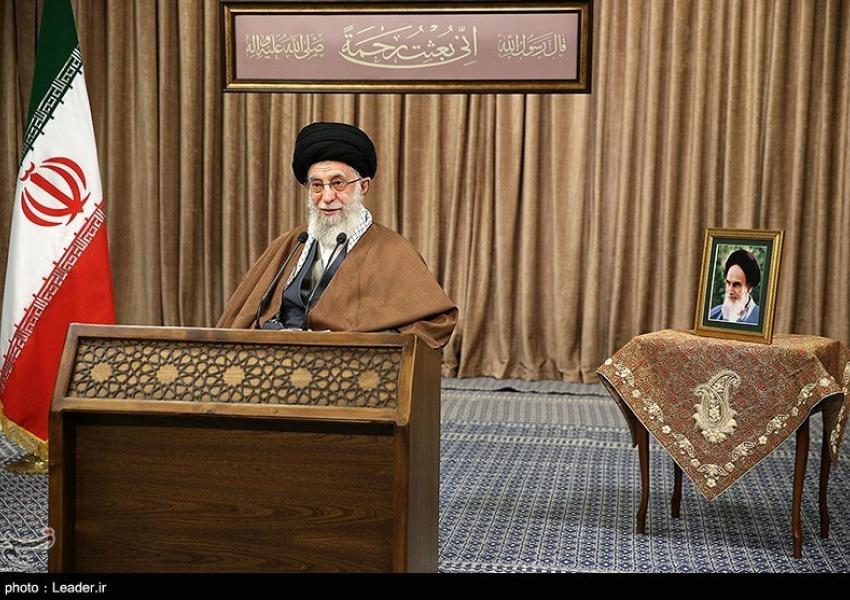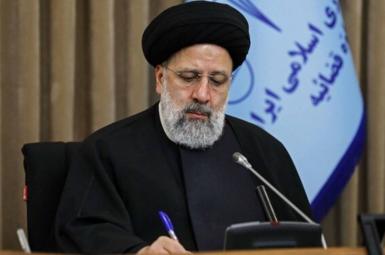
As Year Ends, Khamenei Stresses Damage From Covid Rather Than US Sanctions
As Iran started the year 1400 on its solar calendar Saturday morning, the Islamic Republic's Supreme Leader Ali Khamenei in his New Year (Noruz) message highlighted damage done last year by the Covid-19 pandemic to Iran's economy and extolled the defeat of US ‘maximum pressure.’
In an echo of past years, he named the Persian year 1400 "The year of production: support and the elimination of obstacles." He used the word ‘production’ 26 times in his speech. The names assigned by Khamenei to previous years conveyed little in specific terms as they were forgotten after a few days during which officials and military commanders repeated the slogan.
In Khamenei's terminology, last year was the year of “Surge in Production,” although economic growth was negative for the third consecutive year, partly due to the pandemic which according to Khamenei "badly damaged employment in Iran." Nonetheless, he said that "last year's slogan was not materialized at the level he expected that would have made a change in the people's livelihood."
Had it materialized, Khamenei said, the surge in production would have boosted national self-confidence, general happiness, and guaranteed national security. Khamenei partly attributed the failure to problems over imports and smuggling. Khamenei’s emphasis on the pandemic, rather than on tightening United States sanctions since 2018, helped downplay the challenges Iran faces fulfilling Khamenei’s lofty goals for the coming year if sanctions are not eased.
The leader also drew attention to the presidential poll due in June. “The coming year is an important one for Iran,” he said, “because a presidential election will be held, and a motivated fresh blood is going to be instilled in the country's management."
This reinforced earlier Khamenei statements advocating younger, ideologically-committed leadership. The upcoming government, he said, would need to "really boost production and eliminate the obstructions to economic revival in the country."
While this was Khamenei’s New Year message, it is customary that he delivers a broader political speech – covering major domestic political issues and foreign policy - on the first day of the month of Farvardin, which will be Sunday morning [March 21].
In past years, Khamenei delivered the 1st of Farvardin message in Mashhad during a visit to the holy shrine of Imam Reza, the 8th Shiite imam. There, in 2014, he signaled readiness for a deal with the United States and other major world powers over Iran's nuclear program, so clearing the way for the 2015 agreement known as the JCPOA (Joint Comprehensive Plan of Action).
This should prompt Iran watchers to stay alert for Khamenei's speech on Sunday, as he may signal a change in policy or make clear he is not open to further compromise on the nuclear program or other matters including Tehran's regional outreach and its controversial ballistic missile program.








